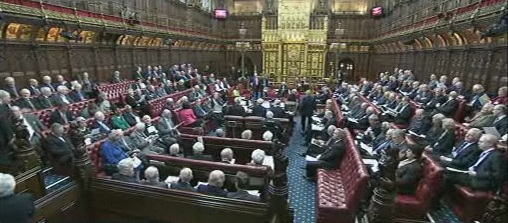Could the coalition collapse over Lords reform?

What’ll happen if CON MPs block the move?
For the first time since the coalition was created in May 2010 I think that there’s a serious chance that it won’t survive the full five year term.
The rumblings from both sides are getting louder and the issue of Lords reform is emerging as the most dangerous area.
In the coalition agreement in May 2010 three main constitutional moves were agreed by the two parties. The first was the AV referendum. The second the reduction in the size of the commons with equalized constituency sizes and a fast track review process. The third was for the second chamber to be fully elected by PR.
It’s the latter that looks set to cause problems as James Forsyth wrote on the Speccie Coffee House blog
“Tory backbenchers are determined to stop this bill getting through the House of Commons. There are, I understand, already more than 81 MPs prepared to vote against it. This rebellion will not be made up of just the usual suspects; I’ve spoken to several MPs with pristine voting records who are prepared to defy the whip on this issue. The danger for the coalition is that the Liberal Democrats are indicating that they think Cameron is obligated to get his MPs to support this bill. Having got their MPs to vote for tuition fees and the like, they are unsympathetic to the argument that Tory MPs just won’t wear a second chamber elected by PR.”
If Forsyth is right then we are entering dangerous territory. If there is a Tory rebellion that stops the bill then the planned vote next year giving final approval to the new boundaries might be problematic. The main beneficiary in electoral terms is the blue team and without the changes it is hard to see how they could win an overall majority.
If a Tory rebellion blocked the key Lib Dem aspiration and part of the coalition agreement on the upper house then it is not hard to envisage a Lib Dem rebellion on the boundary vote.
Where would the coalition stand then?
@MikeSmithsonOGH
